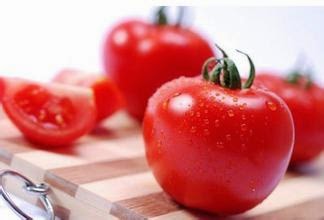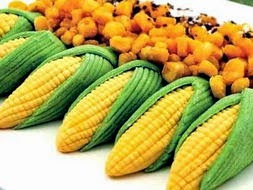Ask the Experts is a series of educational talks and presentations on a variety of topics designed to provide you with important information about living with lupus. To listen to and download the original presentation,
The Bad
Fat: Fried foods, fast foods, and foods made with oil and butter are usually high in fat. Eating too much of these foods can increase your risk for heart attack, stroke and diabetes. Try baking or grilling foods. Think fresh foods, not fast foods.
Caffeine: Coffee, tea and soda almost always have caffeine, which can irritate your stomach and keep you awake. Cutting out caffeine gives your stomach an important rest, especially if you take lupus drugs that already bother your stomach, and can help you sleep better.
Salt: You'll need to cut back, especially if you have lupus kidney disease or high blood pressure.
Alcohol: Mixing it with drugs (even Tylenol) can be a danger to your health.
The Good
Fruits & Vegetables: These are great sources of vitamins, minerals and fiber. They should make up the majority of what you eat.
Calcium & Vitamin D: If you are taking corticosteroids to treat lupus, you are at risk for osteoporosis–a disease that weakens your bones. Low-fat yogurt, cheeses and milk are high in calcium and Vitamin D, which can make your bones stronger. Also, by drinking milk while taking certain medications, you can avoid upsetting your stomach.
Whole Grains & Wheat: Eat more wheat and whole grain breads and cereals that are high in fiber. This can prevent constipation and reduce your risk of heart disease.
Low-Fat Proteins: Fish, chicken and beans are better for you than fatty meats. Eat baked or grilled fish, like salmon and tuna that are rich in heart-healthy omega-3 oil.
Water: Drink at least 8 cups of water a day. Drinking plenty of water is good for your whole body, from your kidneys to your skin, and can help you to control hunger.
1. Will a renal diet with low protein, low potassium & low salt help decrease the protein in my urine, or does diet not impact nephritis due to lupus? How much protein is suitable for those with lupus nephritis?
There are no studies directly looking at this, but we know that protein intake that’s ok for people with healthy kidneys stresses sick kidneys. How much protein is best for you will depend on how well your kidneys function. A Registered Dietitian can work that out for you depending on your blood tests for kidney and liver function.
2. Are there some foods that might cause a flare of my lupus that I should avoid?
This has not been well studied for lupus; in rheumatoid arthritis it’s hard to prove any connection between specific foods and disease activity. Obviously if you have food allergies you should avoid those foods. Otherwise, a well-balanced diet is generally best. Diets high in fish and fish oil are relatively immunosuppressive and can help reduce inflammation.
3. What are some healthy foods to eat to help keep inflammation down?
The best studied are diets high in fatty fishes – salmon, mackerel, tuna, menhaden – are known to reduce inflammation. So can fish oils containing “omega-3” fatty acids called EPA and DHA, and evening primrose oil. Also, green tea and green tea extracts can help reduce oxidative stress caused by inflammation, and maybe reduce tissue damage.
4. I have been told that those with lupus should not eat red meat. Why is this?
There’s no scientific evidence for that. If you have kidney disease, red meat can give you more protein than your kidneys can handle. If you have high cholesterol or triglycerides, red meat can raise these further. But on the other hand, if you have inflammation in your body you need more protein than when you’re healthy. So the bottom line is to eat a well-balanced diet. If you’re not sure how much you should be eating, ask your doctor to refer you to a Registered Dietitian for a consultation.
5. Is gluten free diet useful for Lupus patients?
If you also have celiac disease, a gluten-free diet is critical. Otherwise, there is no evidence that gluten worsens or improves inflammation in any other autoimmune disease such as lupus. If you haven’t been tested for celiac disease, there is a blood test that can be done to check on it.
6. There is so much conflicting information regarding the benefits vs. the unnecessary use of vitamin supplements. How can one tell when diet alone provides sufficient vitamins and minerals, when a multi-vitamin is a good idea, and when specific supplements should be taken (i.e. Take calcium to prevent osteoporosis)?
There’s clearly no harm to taking a general multi-vitamin, which gives about one times the recommended dietary allowance of a dozen or more vitamins. It may not do much good, but it’s harmless and not too expensive. In addition, certain minerals are usually not present in sufficient quantities in the average Western diet. Calcium, the one you bring up, is typical – the current guidelines suggest taking 1200 mg/d for premenopausal women, but most women who don’t drink milk don’t get that much. Iron may be another one – especially if you don’t eat much red meat. So taking a multivitamin with iron and a couple of Tums per day is a good way to stay on top of these nutrients.
7. Are there any natural herbs a person with lupus should avoid? I would like to take several herbs for inflammation but don't know if they are safe.
I would avoid Echinacea, which is an immune stimulant, and saw palmetto (if you’re a man). Garlic and ginseng, which are the most commonly sold herbal supplements, probably don’t have an effect on lupus but I don't know of any studies on them. There are so many herbal supplements on the market, and they change all the time. Moreover, Consumer Reports did a study a few years ago that showed that many supplements do not contain what they purport to. In the absence of evidence of benefit in lupus, I would not recommend taking any supplement without a doctor’s support.
8. Sometimes I have an appetite but most days I don't have an appetite and have to force myself to eat. Someone suggested trying juicing my fruits & veggies as a substitute during times when I am too nauseated to eat whole foods. Is this a good way to go? Rocky Mount, NC
Yes, that’s fine. You can drink as many calories as you can eat. You can add some protein powder to this to round out your diet. If you tolerate milk, then milkshakes, ice cream, etc. are also good. You don’t say if your weight is low, normal, or too high, but if your weight is stable, you’re eating enough calories – don’t force yourself too much.
9. I became a vegetarian after SLE diagnose because of having trouble digesting meat. Since I'm having problems with dairy I'm considering going Vegan. Anything I should worry about or special nutritional considerations (like supplements that should be added) when eating a vegetarian diet when you have Lupus? Portage, MI & Pickrell, NE
Yes, you need to take a multivitamin with vitamin B12, which only comes from animal sources. Otherwise you might develop anemia and nerve damage. Also, it’s important to mix your sources of protein so that you get complete proteins – for example rice and beans, or corn and wheat. Animal proteins, dairy, and eggs are complete proteins, but vegetable proteins generally low in one or more amino acids, which makes them inadequate as sole sources of protein.
10. Are artificial sweeteners safe to consume with lupus? Is there one that is better than another? New Hartford, NY
People have been trying to figure out if artificial sweeteners are harmful for decades. So far, there’s no evidence to demonstrate harm. The alternative – sugar – is not harmless either, especially if you take steroids like prednisone. I would alternate all of them – why not hedge your bets?
11. What are the recommendations for quantity of omega-3 intakes? Montreal, Canada
For heart protection, 1-2 g per day is sufficient. For anti-inflammatory treatment, 2-3 g per day is probably most effective.
12. Please advise on the best solution for a diet that you would recommend helping lose the weight that has accumulated due to the medications for lupus like Benlysta, prednisone, Plaquenil etc. Miami, FL & Albertville, AL
The medication that really causes weight gain is prednisone. The others don’t seem to have a major effect. For anyone trying to lose weight – regardless of whether they have lupus or not – the only way is to eat fewer calories than you burn. You need to find out how many calories that is for you, and then figure out how to eat less than that. I suggest you ask your doctor to refer you to a dietitian to help you develop a plan for weight loss.
13. Are monitored weight control programs like Medifast, Nutrisystem, Weight Watchers, etc. considered safe for those with lupus? Lititz, PA
Yes, as long as you work with your doctor while following the diet. Let your doctor know what you’re planning and have your lupus monitored as you proceed. It should be fine.
14. I have had some significant GI and colon issues with my lupus having 3 major flares in the past 5 months. This is very painful and I am anxious to avoid it again at all costs. I'm doing pre & pro biotics. Are there any alterations to my diet that I may need to make to augment my treatment plan? Shasta, CA
You don’t say what your colon issues are, so I can’t be sure, but I wonder about whether you’re getting enough fiber. I suggest you get your doctor to refer you to a Registered Dietitian to assess your fiber intake. Also, you can have both lupus and inflammatory bowel disease – has your doctor evaluated you for that?
15. Can tea decrease inflammation in the body? If so, are there specific teas that work better? Yakima, WA
Yes, that green tea and green tea extracts offer antioxidant protection. Whether they actually reduce inflammation is less clear, but to the extent that inflammation causes tissue damage partly through causing oxidative stress, there is a good rationale for trying green tea. The amount to take is not really known, but a couple of cups a day would be a reasonable start.
We really can help you more. Leave message on below or Email to sjzkidneyhospital@hotmail.com with your detailed disease condition,we are glad to offer you more professional guidance as soon as possible for free.
.jpg)
.jpg)
.jpg)
.jpg)

.jpg)
.jpg)
.jpg)
.jpg)


.jpg)
.jpg)


.jpg)

.jpg)
.jpg)


